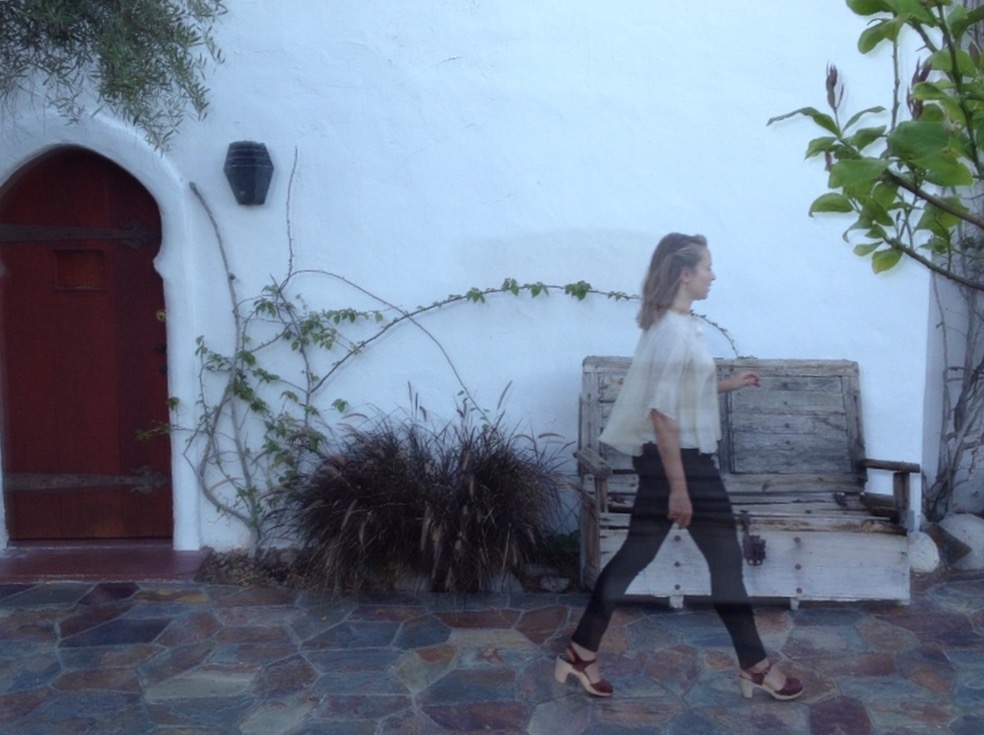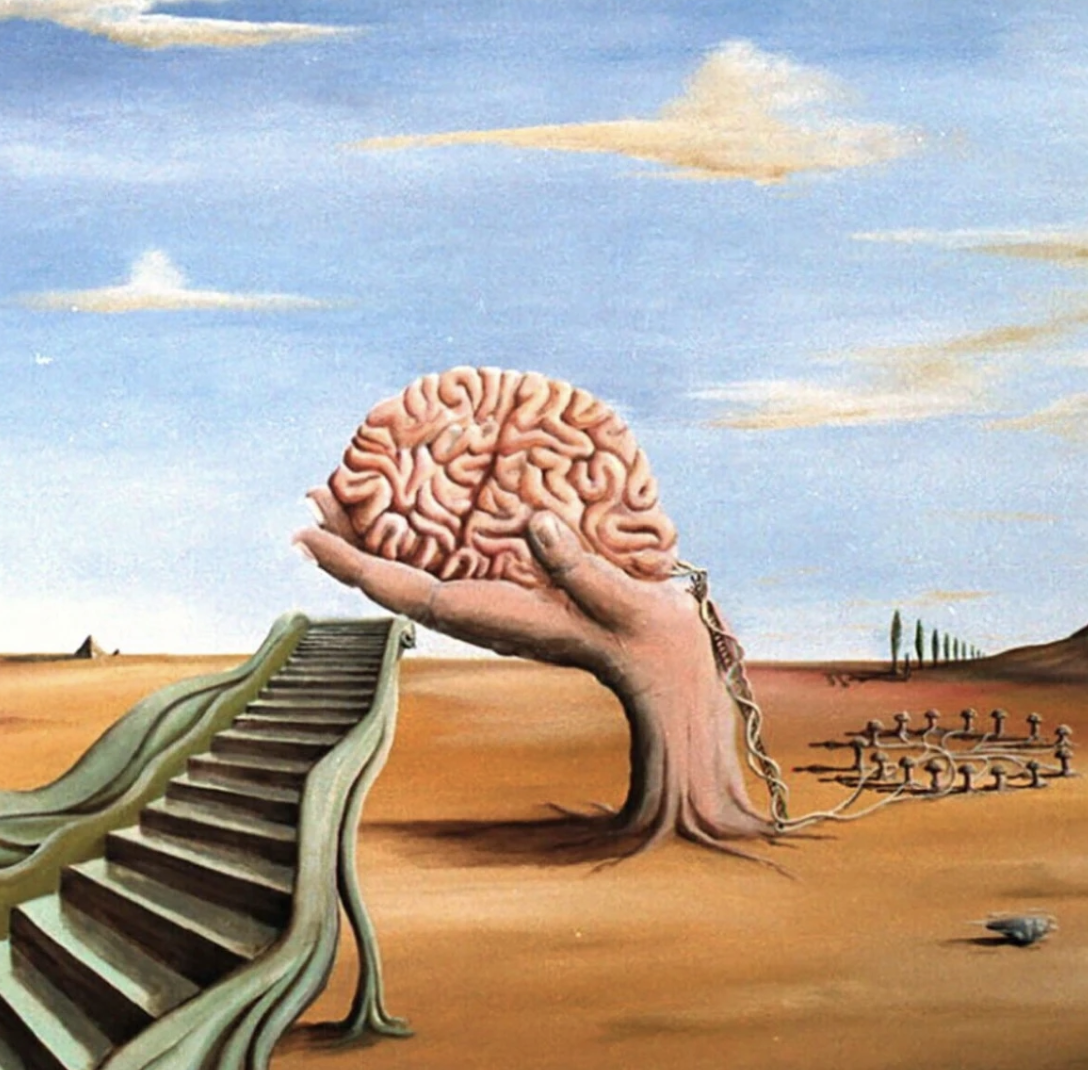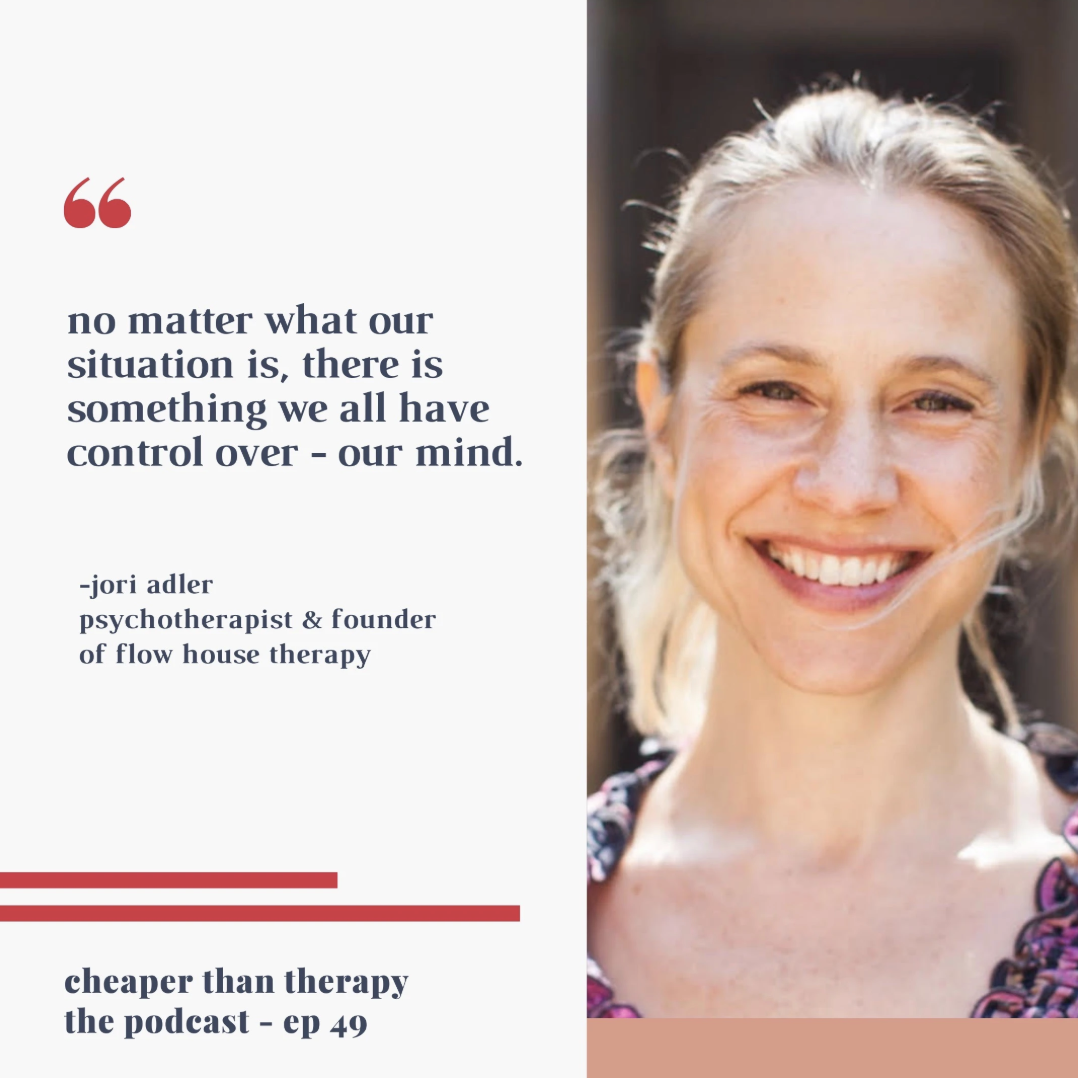Oh, Anxiety
I’m fucking stressed. I’m starting this business on my own and it’s way harder than I anticipated. There are tidal waves of work and pressure. Endless decisions. Management and leadership of people. My ego needs to be constantly checked.
My resting heart rate hasn’t been calm for months. I feel gripped in my chest and my mind never, ever ceases. Everything I do and see is through a prism of work. I’m impatient, obsessive, I can’t let go of things. And I'm scared. Scared of putting myself out there, scared of failing, of not being liked.
I can’t unclench my racing mind. What I do know, neuro-biologically, about anxiety is that at the route anxiety is about fear.
Three facts of the human brain on anxiety:
(1) First, the fear response says, "Act now, do not wait. You are being threatened."
(2) Second, the fear response blocks out everything else in the mind. It occupies the entire screen.
(3) Third, its warning is always exaggerated. Fear cannot tell the difference between a small threat and a large one - an imaginary danger or a real one.
We can overcome all three elements of anxiety when they occur:
(1) First, when our fear tells us that immediate action is called for, do not believe it. We have time to pause and better assess what is truly going on. Our lower brain does not know the difference but after a few seconds our higher brain will step in with an accurate action plan.
"If I don't bid on this rug on ebay Right Now, I will Lose It!!" "No, actually the auction lasts another seven days, so there is zero need to do anything right now."
(2) Second, if an anxious response fills our mind so that we can think of nothing else, step away - preferably reset by going outside. After a few minutes, our mental screen won't be overwhelmed by the single panicky thought. "Is it still there? Is the rug still there? Is it???" "YESSSSS, where the fuck else would it be? Oh, look, there's a bird."
(3) Third, when we feel exaggerated fear while we're panicked, tell ourselves, "I'm doing that crazy brain thing. Chill, this is way out of proportion." "Even if I lose out on this rug, there are many others. Plus, it's a rug."
Photo by Johnny Keethon
Flow House
I’m happy to introduce you to Flow House Therapy in Los Angeles, California. At Flow, we are a community of therapists and healers working collaboratively in a beautiful house near Venice Beach.
In my private practice, I had many clients coming in with “anxiety,” but what does that word really mean? It can mean so many things! It can manifest physically as pain, exhaustion or stress. It can be emotional – moodiness, emptiness, fearfulness, lack of joy. Or it can be more subtle, sneaking in with unrealistic self-expectations, and when you feel insecure, not good enough, or like you need to control people & events.
Even though many of us are struggling with the same kinds of issues, I realized that each individual heals in different ways and responds to very different approaches.
I saw a need for something more than traditional talk therapy: other tools, other practices - both ancient and modern. I talk on my blog about the different ways I have learned healing can take place, such as modern neuroscience, secular spiritual philosophies, and body-oriented approaches.
By breaking down the barriers between these practices and drawing from each of them, Flow House came to life. Along with my longtime passion for design, art and interiors, I had a newly-defined perspective that I wanted to share with the community!
I have taken a pause from my blog, but have been full of creative expression on our Flow social networks. Recent topics have included healing in relationship vs on your own, attachment styles, meditation techniques to awaken the body, sexual power in relationships, letting go of obsessive thoughts, our brain’s negativity bias, and ways in which we keep ourselves small in order to fit in socially.
🌱 If you want to stay connected and help our business grow, you may enjoy following us on Instagram. All my future writing will be on the Flow House Blog. If you’re in the Los Angeles area and interested in coming in for a session, check out our website. We would love to meet you!
We have many more exciting offerings coming to life and cannot wait to share them with you! Love, Jori
I Hate Change
We spend our lives anticipating, and trying to protect against, loss and change. We're afraid of things changing - of losing something we have or not getting something we want.
Recognizing impermanence, the concept that nothing is permanent, is about being present with what is. Everything is transient; it really is. Anything can happen at anytime. And nothing remains the same forever, it's always changing.
At first, this can seem frightening, but really it means that you don't have to live in this protected shield trying to keep things from happening. You don't know what will happen, you can't possibly know, and it's not your place to know. So when things do happen, you accept it.
Korakia Pensione, Palm Springs
A friend recently brought some amazing Pixie oranges picked from her tree in Ojai. Ever the committed student, I thought of Thich Nhat Hanh's advice on how to mindfully eat a tangerine. Here I was carefully peeling the skin, savoring the fragrance, tasting the sweet explosion. So desirable was this state of enjoyment, that three bites in I noticed I was already planning ahead to the next orange I would eat. Not even halfway through this one, I knew it would soon be over and fixated on how to get more. So much for my mindfulness practice.
This is what we do! We spend our lives anticipating, and trying to protect against, loss and change. We're afraid of losing something we have or not getting something we want. Conversely, we fear getting what we don't want and not losing what we want to lose. We get wrapped up in worrying, "What is it gonna be like when he's gone" that we miss having him here now. We miss the present experience.
Recognizing impermanence, the concept that nothing is permanent, is about being present with what is. Everything is transient; it really is. Anything can happen at anytime. And nothing remains the same forever, it's always changing. It's not religious or spiritual, it's just the way it is.
At first, this can seem frightening, but really it means that you don't have to live in this protected shield trying to keep things from happening. You don't know what will happen, you can't possibly know, and it's not your place to know. So when things do happen, you accept it.
"The bad news is that you just jumped out of the plane with no parachute. The good news is that there's no ground." - Trungya Rimpoche
We need to let go of needing or wanting things to be a certain way. We suffer when we try to hold on. Everything changes and it's not because we did something wrong. That's a myth: that if it changes or ends, we failed. It's just the nature of how things are. Things change. There's pleasure, there's pain; there's praise, there's blame. Sometimes it seems to last forever, sometimes it goes away very quickly.
One of the simplest, most accessible, transformative avenues to freedom and the development of spiritual wisdom is this acceptance of impermanence. Someone once asked Zen master Suzuki Roshi, "Can you reduce Buddhism to one phrase?" His answer: "Everything changes."
We all know everything changes, so it's not an esoteric statement. We all know this, but on what level do we know this? We know it intellectually, conceptually. But we need to go from that level to the level of direct immediate experience of things changing as they're changing.
Tune into the ever-changing, flowing experience around you. Sounds, sensations, thoughts, feelings. No moment has ever been the same as any other moment. Even the earth beneath your feet is vibrational, energetic; we know it's not solid, not stable.
What feels so solid and fixed in our bodies and minds is really in constant change. Notice the flow of change as you go from sitting to standing. How many changes in the body are involved in that simple move? Feel the different sensations as you're walking. As you're moving, note the changing sights and sounds, the arising and passing of thoughts in the mind. And that none of these experiences last. It's so ordinary that we've basically stopped paying attention.
To take it deeper, think of a time you went to a good, absorbing movie and were caught up in the storyline or action. You get sucked into the feeling, the emotion, but is anyone actually getting chased or falling in love or dying? No. Really what's happening is just pixels of light on a screen. But our mind is not seeing it on that level. When we stop to look, we see that the apparent reality is really not what's going on at all. So we can bring that same kind of awareness by dropping down into the flow of the simplest things - movement, sound, breath, sensation. It's on that level that we begin to feel very clearly the impermanent, momentary nature.
When we're on the concept level - "This is an arm, this is a leg" - since the concept remains the same, we have this idea that the reality is unchanging: "I have an arm today, yesterday, probably tomorrow." But when we drop down to the experience level, we see that it's all a flow of constant change. This does not suggest that we shouldn't engage with the stories, dramas, movies of our lives, but it's an invitation to also see the deeper level. If we can experience what's underneath it, the changing nature of what's arising, then we don't fall so easily into reactivity or suffering.
The clearer we see the flow of change, the less we cling. The less we cling, the less we suffer.
A Soulful Life
I invite you to follow the example of the great teacher of soul, Socrates, and do something concrete to introduce soul into your life. Socrates writes about the Greek therapeia, which means either "care" or "service." He says that it's like the care you'd give a horse on a farm: you feed it, brush it down, exercise it, give it water, and clean its stall. That's the model for therapy of the soul. It's an everyday attention to specific needs, not a cure or repair after things have fallen apart. Its goal is not to make life problem-free, but to give ordinary life the depth and value that come with soulfulness.
Frank, Mill Valley, 2013
The word used for soul in Ancient Greek is psyche, the word found in our words psychology, psychiatry, and psychotherapy. Imagine if we restored the original sense of soul to those fields, how we might deepen them and make the necessary connections between psychology and spirituality. If we neglect our souls, we lose both our humanity and our individuality and risk becoming more like our machines and more absorbed into a crowd mentality.
I invite you to follow the example of the great teacher of soul, Socrates, and do something concrete to introduce soul into your life. Socrates writes about the Greek therapeia, which means either "care" or "service." He says that it's like the care you'd give a horse on a farm: you feed it, brush it down, exercise it, give it water, and clean its stall. That's the model for therapy of the soul. It's an everyday attention to specific needs, not a cure or repair after things have fallen apart. Its goal is not to make life problem-free, but to give ordinary life the depth and value that come with soulfulness.
Distinguishing Soul from Spirit
Spirit directs your attention to the cosmos and the planet, to huge ideas and vast adventures, to prayer and meditation and other spiritual practices, to a worldview and philosophy of life. Spirit expands your heart and mind, gives you vision and courage, and eventually leaves you with a strong sense of meaning and purpose.
Soul is more intimate, deep, and concrete. You care for your soul by keeping up your house, learning how to cook, playing sports or games, being around children, getting to know and love the region where you live. Soul allows you to become attached to the world, which is a kind of love. When the soul stirs, you feel things, both love and anger, and you have strong desires and even fears. You live life fully, instead of skirting it with intellectualism or excessive worries.
There are certain things that the soul needs: a sense of home, deep friendship and casual friendliness, a poetic and metaphorical appreciation for words and images, attention to night dreams, the fine arts, an intimate relationship with the natural world, acquaintance with animals, memory in the form of storytelling or keeping old buildings and objects that have meaning. We can do many things to care for the soul such as reconciling our sexuality and spirituality, caring for children, finding work that we love, incorporating play and fun in everything we do, dealing effectively with loss and failure and inadequacies. The shadow, or the unconscious part of our personality that we remain ignorant to, is an important aspect of the soul.
How do you make a soulful life for yourself?
1. Serve the soul rather than the surface needs of life. If your soul is suffering neglect, you will have symptoms. You may feel depressed and your relationships may be hurting. You may notice you've been buying a lot of stuff lately. You may have neck or stomach pain. Know the difference between deeply caring for your soul and temporarily solving problems. Instead of immediately looking for routes to happiness, give time to exploring the needs of the soul to be sad.
2. Your symptoms are the raw material for your soul-making. Look closely at your emotional struggles, diet, body pains, mindless habits to see what your soul is missing. Symptoms are painful and in need of tending and refining, but they contain the essence of what you are looking for. For example, if you drink too much, what is your soul looking for in the alcohol? If you eat too much, what part of your soul is in need of nourishing? Think poetically and resist responding on a surface level.
3. Take time for reflection. Don't be quick to make decisions and go into action. In my opinion, the most important element of a soulful life is time alone in silence. It can be in the shower, in your car, washing the dishes, on a walk, in meditation. What is going on inside of you? Without the din of constant stimulation, what do you hear? What is your body trying to communicate to you? Often, you will intuitively know the answers to these questions, but find that you have been avoiding them.
In Practice
Every day you have choices. You can do things that wound your soul, like being dominated by the work ethic or compulsively seeking more money, recognition, and possessions, or you can be around people who give you pleasure and do things that satisfy a desire deep inside you. Find those activities and resources that will nourish your soul: make/build/design/create, experience nature, bring art into your life, write down your dreams, journal, be physical, listen to music, play, tend your home, tune into animals, find community, pursue curiosity/learning, garden, cultivate generosity, get out of your routine, do new things, explore, spend time on your own...
The essence of spiritual experience is our recognition of the infinite mysteries that abound in life like those surrounding love, death, illness, meaning, work, and home. Respect for the mysterious is, to me, the heart of spirituality. Have fun knowing that you don't know what's going to happen to you, that you can't possibly know what's going to happen to you. It's not your job to know! Rather, what's important is to keep investing in a soulful life and have faith that whatever does happen, that YOU WILL BE OK.
Make this soul care a way of life, and you may discover what the Greeks called eudaimonia -- a good sprit, or, in the deepest sense, happiness.
Care of the Soul by Thomas Moore
True Belonging
The present moment of your life, when you really stop and notice it, is filled with constantly changing conditions. Yet, much of the anxiety in our lives comes from the fact that we cannot hold on to anyone or anything. How can we ever live happily knowing that nothing lasts?
In the midst of constant change, perhaps what must stop is you? Is it possible that the only thing that could stop is you? Could it also be that, when you stop, you notice and appreciate the amazing array of interconnections continuously maintaining your life and linking you with so many others?
Lake Elsinore, CA
The present moment of your life, when you really stop and notice it, is filled with constantly changing conditions. Of course, there are the changing conditions and situations around you: sights, sounds, smells, people, and so on. None of these lasts. You cannot hold on to them. And also the closer, more intimate experiences - those in your inner life of mind and body - are always in flux. Yet, much of the anxiety in our lives comes from the fact that we cannot hold on to anyone or anything. When things are good, we fear change. We cling to people, trying to assure that they'll never leave. How can we ever live happily knowing that nothing lasts? Perhaps the secret lies in learning how to become more at home, at ease, accepting, and wise about the truth of constant change.
In the midst of constant change, perhaps what must stop is you? Is it possible that the only thing that could stop is you? Or perhaps, some part of you, a part that can be known, is already stopped and is merely waiting to be found? Could it also be that, when you stop, you notice and appreciate the amazing array of interconnections continuously maintaining your life and linking you with so many others? Learning to look more closely at threads of interconnection and interdependency operating in each moment could become a strategy that supports you in times of stress or loneliness.
For example, imagine that you are about to eat an apple. As you look closely at the apple, what do you see? How did that apple come to be in your hand?
The apple represents the growth of a seed into a fruit-bearing tree that was nourished by light, moisture, nutrients, and many other things. The tree bore fruit that was picked and prepared by someone and transported somehow to a market or fruit stand, where you likely purchased it with money you had earned from doing something for someone else in another series of relationships. Once the apple is in your hand, the different systems of your own mind and body become involved to bite, chew, swallow, and digest the apple and absorb its nutrients.
And that is only part of the story. Where did the apple seed come from? How did you learn to do what you did to earn the money to buy the apple? How did you get to the place where you bought the apple?
On one level, all this can seem like an abstraction, but on another level, if you look deeply enough, can you envision the seed, the sunlight, the workers' touch, and all of the other elements in the long body of events behind the apple you are now holding? Without any one of these elements, the apple would be different or would not be there at all.
Learning to stop, rest, and flex your view in this particular way - noticing the interconnectedness in experience that is changing every moment - could mean learning how to keep your heart open to any experience, or anyone.
When you trace the essential elements of life - water, soil, air, sunlight - you begin to see how closely linked you really are with all living things. You share in the sources of life with so many others.
- Jeffrey Brantley and Wendy Millstine, True Belonging

















